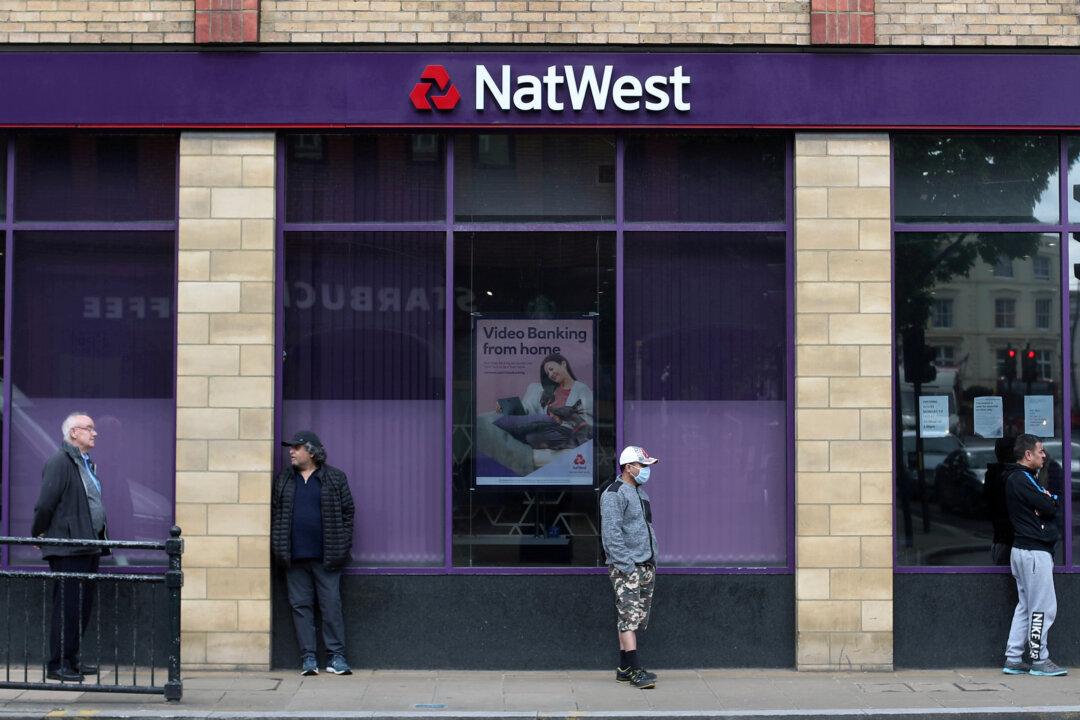The government needs to either scale back red tape or compensate banks in order to stop a “debanking epidemic,” a think tank has said.
The report said while the banks are “rightly” free to disassociate themselves from those they don’t want to serve, when they are “co-opted by the government to act as crime fighters,” they tend to presume guilt because in many cases, it’s not commercially viable to find out whether a customer is innocent.
Citing figures revealed via a Freedom of Information request to the Financial Conduct Authority, the IEA said UK banks closed a total of 343,000 accounts in the year 2021/22, up from 45,000 in 2017 when the Money Laundering, Terrorist Financing, and Transfer of Funds (Information on the Payer) Regulations 2017 (MLR 2017) were passed into law.
“The reason in about half the cases was the bank’s inability to satisfy itself, to the standards set in response to the MLR 2017, that the customer was not involved in money laundering or terrorist financing,” the report reads.
“This is a commercially rational response given that the fines for being deemed non-compliant can be in the billions, and that responsible staff can face serious personal penalties.”
Using as an example a fictional bank customer called Susan Smith, who has an average daily balance of £1,000 and pays her bank an annual account fee of £100 a year, the report said the cost for a bank to manage the risks associated with Ms. Smith’s account can easily exceed the revenue it earns from it, and it’s better to simply unboard Ms. Smith even if she is in fact a low-risk customer, because it’s not worth finding out exactly how many risks there are.
Certain types of customers, including prostitutes, racecourse bookies, charities, cryptocurrency businesses, small companies with business in developing economies, and politicians, are vulnerable to account closures because they present “a relatively high prima facie risk of being involved in money laundering,” and because the cost of discovering whether they really are criminals would exceed the value of their business, the report said.
“So, except for those few who provide revenues large enough to be worth the cost of finding out, whole swathes are debanked,” the report said, adding that those whose bank accounts are not closed are also bearing the cost of the red tape.
Citing a study by Lexis Nexis and Oxford Economics that found banks spend over £34 billion a year on AML compliance, the IEA said it’s “double the £17.4 billion the government spends on policing all other crimes put together” and equates to around £220 a year to each of the UK’s 160 million bank customers.
The IEA argued that there’s no evidence AML regulations reduce crime, and called on the government either scale them back to the “pre-2017 regulatory regime, if not further” or compensate banks for the compliance cost.
The think tank also rejected the idea that AML measures can be justified as part of managing reputational risk, saying reputational risks other than insolvency have not been shown to lead to bank runs.
The issue of so-called debanking came under the spotlight last year when high-profile former politician and media personality Nigel Farage suspected he had lost his Coutts account because of his political views.
Mr. Farage’s political views featured extensively in the bank’s decision making process as part of “reputational risk” considerations, as shown in a Wealth Reputational Risk Committee (WRRC) report.
According to the external reviewer, Travers Smith, Coutts had assessed the commercial viability of maintaining Mr. Farage’s account using metrics for politically exposed persons (PEPs) or high risk clients, and found the income Coutts had generated from his account was “below (by some margin)” the costs it was incurring in maintaining his accounts.
The WRRC report, which recommended a scheduled termination of Mr. Farage’s accounts, or an accelerated termination if an external team tasked to do monthly adverse press checks on him found things that amplify “the reputational risks” associated with banking him, also included a a third party comment that said there was “an extra cost attached to managing the accounts of high profile individuals such as [Mr. Farage].”
Previously asked about the costs of commissioning adverse press checks and other extra costs incurred in relation to maintaining the accounts of PEPs and high-risk non-PEPs, NatWest told The Epoch Times, “We continually review the operation of customer accounts in line with our legal and regulatory obligations including additional monitoring of high profile customers, which is standard industry practice.”
The Epoch Times reached out to the Treasury for comment.







